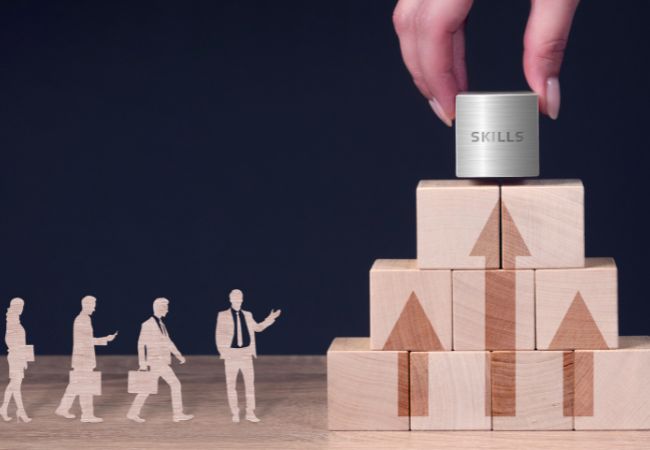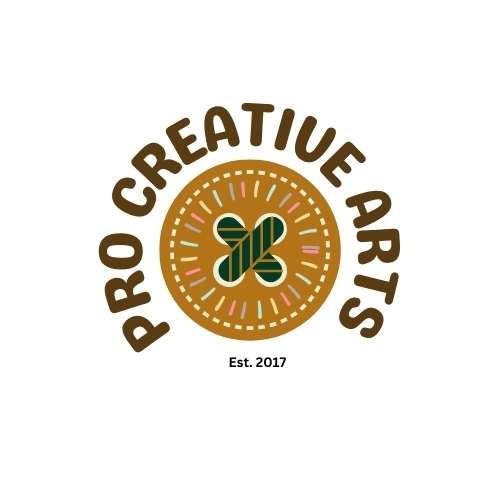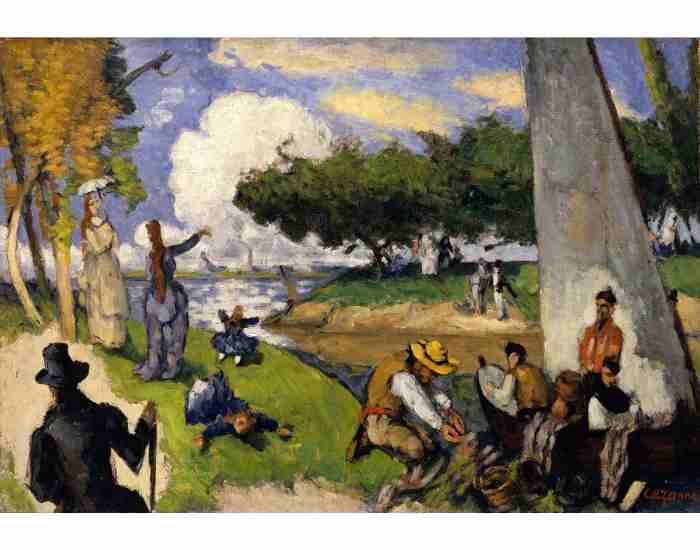Most people usually find it hard to balance their personal and professional life but having the drive and desire to grow, create new ideas and remain motivated can help drastically improve both axes of one’s life. But in today’s rapidly changing environment, being flexible and creative is crucial hence those attributes are necessary.
The combination of personal growth and the elements of psychology are rarely emphasized as they should be. Techniques such as self-motivation and creative thinking rely on psychological approaches which enable one to strive further than previously set boundaries. Combining personal experience and research, this article should offer practical suggestions and interesting examples with the aim of helping you find and develop your skills.

Discovering What You’re Good At: Why is Self-Awareness Crucial in Identifying Personal Skills?
The Role of Self-Awareness
Self-awareness is the first and foremost inquiry which unveils one’s competencies. This means having information about one’s emotions, strengths, weaknesses and drives. Research shows that people who practice self-reflection on a continuous basis are prone to know their skills/competencies/his/her unique capabilities better and therefore do better in their lives both socially and professionally.
As an illustration, Harvard university says that self-awareness is crucial to success: about 83 percent of high self-aware people are top achievers and the have 32 percent more chances to be in a leadership role.
Ways to do Self-Assessment Classy
Conducting a self-assessment is potentially instrumental as it will enable one to enhance one’s strengths. Here are some useful tips:
Mind Map Exercises: There is often some skills which lie hidden among other skills, these exercises help to visualize these connections and skills which otherwise may have not come to the fore.
Psychology Today Techniques: Using tools like SWOT analysis is also useful as it provides a structured way of looking at one’s professional abilities: strength & weaknesses as well as opportunities and threats out there.
People’s Success Stories Through Self-Exploration
There are great many people who today can attribute their rapid ascend in their respective careers due to setting the skills earliest and enhancing them, such as:
You can hear Susan Wojcicki, the Ceo of YouTube explain how understanding her abilities in the sphere of technology and business made her take a decision to work at google when it was still at its provide her with the opportunities she has today.
Through his daily writing and consistent productivity endeavors, James Clear, the writer of the renowned book “Atomic Habits”, managed to publish a successful book by turning his interest into something more meaningful.
Why is it that one must exercise their creative skills in as many factors as possible?
Creativity serves a core purpose: solving problems and coming up with innovative ways to cater to ash aspect of life ranging from personal problems to scientific advancements. It has the power to produce ways to swiftly tackle evolving environments. In a survey conducted by Adobe, it was found that 78% of people who have completed higher education understand the importance of creativity when it comes to economic development while 85% more specifically voted its role in social creativity as important.
How can one go on to improve their creative skills?
Encouraging the development of creativity comprises of both having a plan ready and carrying out free thinking, here are effective mechanisms:
Brainstorming: brainstorming either as a group or alone has been proven to generate limitless ideas and encourage out of the box thinking which is highly needed. Pixar Animation Studios is a great example of a company that benefits from regular brainstorming sessions.
Design Thinking: When the context revolves around coming up with solutions, which in turn pave way for a new product or a service, then this particular method is ideal. User testing and problem resolution is the focus and Apple and IBM modify how their products and customer experiences look through this technique.
Could you provide some creative projects that will require little effort on the part of the claimant?
These projects are a good method of honing and further developing your creativity. Here are some that you can work on right now:
Art Commissions Done By Ai: Deal with DALL-E or Artbreeder, which enables them to do complex images from plain texts and brace the boundaries of both traditional and digital mediums.
Maps Of The Mind: MindMeister is a web-based brainstorming tool which allows users to see and understand aspects of communication better by manipulating in and around topics, thus improving creative problem-solving.
What are the psychological foundations of motivation?
Motivation is sociopsychological mechanisms that act as a drive for goal-following behavior and are relevant for goal internalization. The key concepts to know are the following:
Overjustification Effect: This effect occurs when external rewards lower the enjoyment of doing a task that the person likes. In the 1970s, psychologists Mark Lepper and David Greene’s research showed just how the promise of a reward could diminish intrinsic motivation.
Intrinsic Motivation: This type of motivation originates from within the individual because the engagement is rewarding in itself. Self-determination theory postulates that participants who are provided with conditions which enhance their feelings of autonomy, competence and relatedness tend to have more of this kind of motivation.
How do you get to the end of the day with the same desire for action as when you woke up?
To ensure you remain fully motivated, the first thing you do is build and maintain set daily habits that fit your aspirations. Think of the following habits:
Dare To Dream Big And Write Down Your Goals With Accuracy: This means not only mapping out a goal that is precise and yet difficult but stating on what circumstance, time and even place that action towards this goal will happen. In a research undertaken in New York University, exercise compliance amongst individuals with weight training goals was 2 to 3 times higher for those who were trained with implementation intentions.
Can you mention some motivational tips or even a story from great achievers?
Virtually everyone who has attained a high status dishes out motivaating tips and stories that explain how they keep themselves on track.
Elon Musk: In light of his growth numbers in technology as well as space, Musk’s advice to remaining motivated during hardships is simple: have a motivating vision and a great goal.
JK Rowling: She continues to come out to these hurdles of rejection and self-defeating personality by embracing her love of writing and her steadfastness to the story she is telling: The story of harry potter.
Skills, Creativity, Motivation and Their Contribution to Self-Actualization
Professional and personal development pillar asks interdependence of skills, creativity, and motivation. Thus, every element nourishes the other, and this brings about a cycle of development and accomplishment. For instance, developing a particular ability can enhance self-belief and boost creativity, while creative accomplishments can enhance motivation due to the satisfaction derived from them.
Research on this interconnected relationship a bit. Stanford University’s study concluded that students who were exposed and taught to engage creatively in mathematical problems were not only found to be motivated but also had superior problem-solving skills in comparison with those who were only taught to use rote methods. It follows that if one nurtures a skill, it will influence others positively as well.
What Advice Can Be Given On How To Allocate Skills Development, Creation Of Motivation And Techniques To Inspire Creativity?
Conducting these three strategies needs careful planning as these require certain actions to be enhanced while avoiding putting too much attention on others. Here are some strategies on maintaining this balance:
Goal definition and building hierarchies: Comprehend the skill that requires development, how creativity would be manifested and the inspiration required. With a well-defined purpose would facilitate efficient allocation of time and resources.
Include Daily Elements: The first step you can take in meeting your objectives include small actions that combine the aspects of skills, creativity, and motivation. For example, you can break your day into segments where thirty minutes are allocated for learning a skill, twenty minutes for journaling or sketching, and another ten minutes for reading inspirational material.
Reflection on Progress: At set intervals, check and where necessary revise your strategy so as to still be in line with your goals. This could also mean reaching out to some peers or mentos for assistance and potential ideas.
Could you showcase one of your meticulously crafted case studies for us readers?
Case study: Dr. Julia a specialist in Psychosocial Rehabilitation
Dr Julia, an experienced specialist in psychosocial rehabilitation exemplifies how success can be achieved within a challenging field as long as skills, creativity and motivation are in balance. This involves assisting clients with rebuilding their lives after struggling with their mental health using creative therapies and programs aimed at acquiring new skills.
Skill Development: To stay relevant, Dr Julia continually broadens her toolbox during working hours and off work hours by attending seminars and workshops, as well as other forms of professional education. The way she does this is by Read more
Creative Use: During her therapy sessions Dr. Julia incorporates diverse techniques such as art therapy and drama, and narrative writing, that not only allow her clients to tap into their creative juices, but also enable her understanding of them to come up with new therapeutic techniques.
Motivation Methods: To remain focused, Dr. Julia determines both personal and career objectives. She employs implementation intentions in order to appoint specific activities towards the achievement of these objectives, for instance doing a set amount of case studies or publishing a set of research findings.
As a result of Dr. Julia’s methodology, she managed to achieve great results with her patients, and many of her case studies have been cited in a range of scholarly resources which highlight the value of utilizing synergy of these three elements.
Frequently Asked Questions
What Are The First Steps To Become Good At What You Do?
It all starts with self-evaluation and self-indulgence. This is the way how you can hit the targets and find the gaps which will help you to skill yourself into your abilities and strength:
Contemplate Previous Roles: Analyze the positions that you have previously held and engagements with clients giving emphasis on feedback. Identify instances whereby your performance was exceptional or when you felt animated.
Engage in Skill Assessments: Instruments such as StrengthsFinder or Myers-Briggs are useful from the perspective of opening up doors to areas where you could either excel professionally or personally.
Request for appraisals: Ask your colleagues, also friends and mentors to shed outline on your probable strengths. This will aid the validation of self-sought assessment or recommend alternatives.
Engage in New Skills: Try different chores and activities to try and help you find some new skills and talents you may never have known you had. Sometimes these new skills are easy to find, but sometimes it’s requires trial and error.
According to studies, people who are systematic in evaluating their skills and reevaluating them now and then increase their chances of unlocking potential talents by up to 25% which is beneficial in career growth and overall satisfaction
Why aren’t my creative abilities improving, what is wrong with me and what is the reason for this?
For creativity enhancement, regularity is critical. People engage in creative activities three and four times a week as part of University of Wisconsin’s research and this has dramatic improvements to their ability to think creatively and problem solve. Some recommendations include:
Everyday: When working to a time constrain, short bursts of a few minutes each day can help. Mini-Daily tasks such as Mindless Doodling, scribbling and freewriting can work wonders.
Set Days: For high intensity hobbies, for example, painting or story writing, aim for longer but fewer sessions throughout the week.
Self Reflection: After each creative session, it is advisable to take a few minutes to think about the piece created and it’s functions so that next time, you will have a better idea of what to do.
What can you do to boost your motivation when it feels like you are going nowhere?
Maintaining motivation while feeling like you aren’t making any major steps forward can be difficult. To make sure you don’t give up, try these useful methods:
Start With Easy Goals: It’s helpful to divide a bigger project into tiny tasks so that you do not lose motivation. A good idea would be to celebrate your smaller achievements in order to stay motivated.
Stay Focused on the End Goal: Always try to remember what is the aim you were trying to achieve. By doing visualization exercises, you ensure the endeavor is consistent with what you have set out to accomplish.
Be Ready to Try New Things: If you feel like you have hit a brick wall, consider revisiting former methods. Sometimes just trying a new way to look at the problem helps spark new motivation.
Find People With Shared Goals: Finding a community for your interests or a mentor who has similar goals is a great way to get additional motivation.
As per research, those who follow these suggestions are 30% more likely to stick to their goals and ambitions compared to those who do not.
Conclusion
There is a high level of interdependence between finding new skills, enhancing their creativity and motivation within them, and it is important for people in both personal and professional relations all. These components are mutually supportive and collectively enable people to be successful and feel satisfied in life.
Be sure to use the techniques and suggestions that I have provided in this article. Try an approach while developing a form of learning, or even a work around to tackle failures because every single effort you make is a stepping stone in your metamorphosis.
To wrap things up, let’s give one last call to action- “No More Waiting, Today is the Day. A journey of a thousand miles begins with a single step – let today be your first step towards skill-set mastery, maximizing creativity, and amping up that motivation. Never forget that your imagination and commitment determine the impact that you can make.” Building habits and self-reform is a great deal and I can assure you that once the work is invested, the fruitful outcome will come in the form of a better tomorrow.
More Post
- How to Use Free Stock Photos Without Getting Sued: Navigate Copyrights and Licenses Like a Pro
- How to Become an Artist Without Going to Art School?
- How to Start an Art Blog or a Vlog and Get Noticed?
- How to Create the Perfect Portfolio to Show Your Creative Work?
- How to Get Better at Drawing: 8 Easy Tips for Beginners




